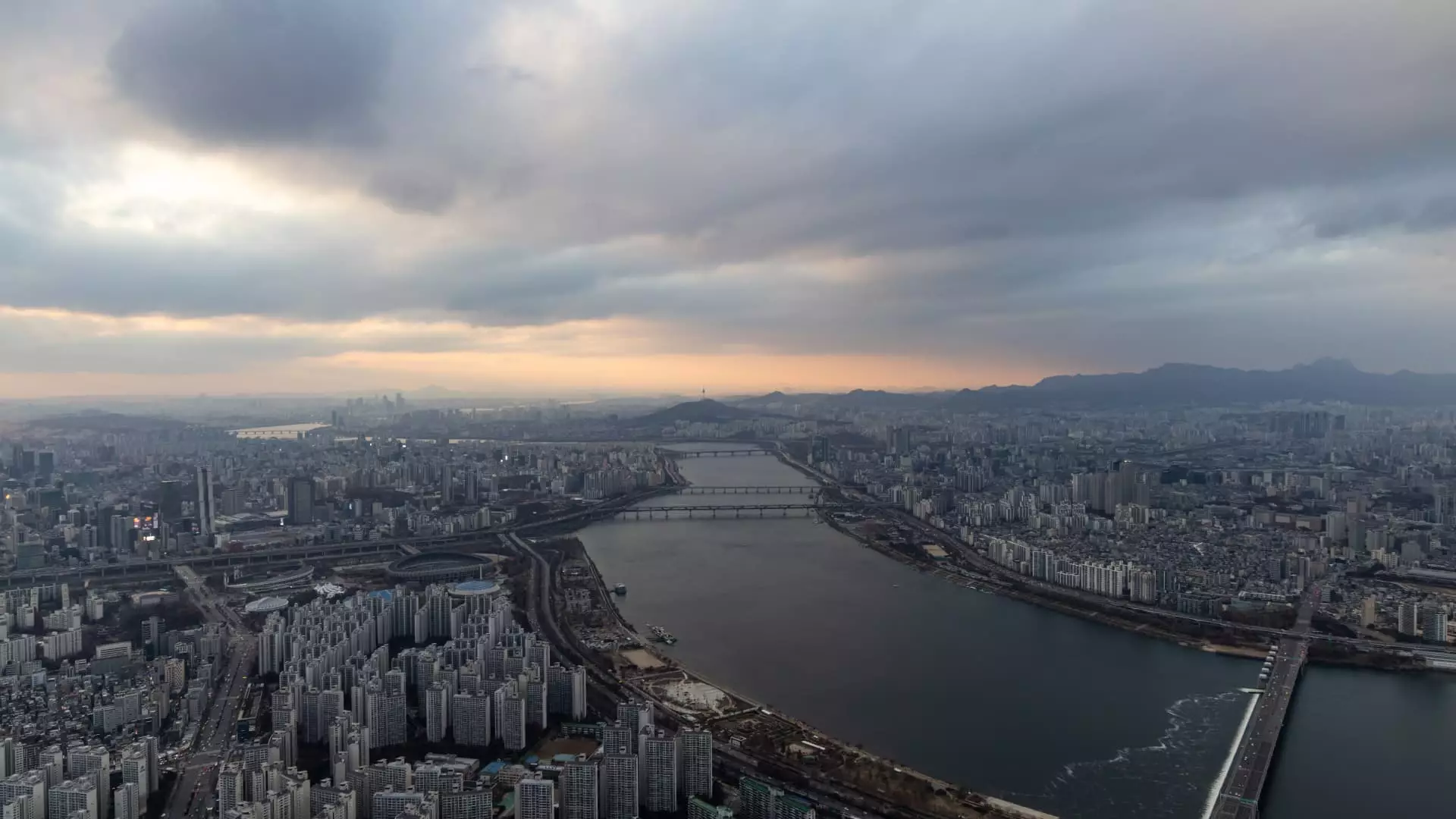The recent economic contraction in South Korea, which registered a disappointing 0.1% decline in GDP for the first quarter of 2025, serves as a glaring reminder of how deeply intertwined economic performance is with political stability. For the first time since late 2020, the country has experienced negative growth, a stark reversal from the expected 0.1% growth that analysts confidently predicted. This unexpected downturn, particularly highlighted by a staggering 12.4% contraction in the construction sector, begs a deeper inquiry into the underlying causes of such economic distress.
South Korea is a nation that prides itself on resilience and growth, largely built upon an export-driven economy. However, the recent turmoil – characterized by ongoing impeachment trials and political instability – indicates that these structural strengths can swiftly transform into vulnerabilities when governance falters. As political chaos breeds uncertainty, both domestic consumption and foreign investment can rapidly dwindle, suffocating the economic growth engine.
High-Stakes Trade Wars Influence Economic Landscape
Additionally, the broader backdrop of global trade tensions has made South Korea’s position precarious. The lingering effects of a trade war, particularly with the United States, add a layer of complexity to an already strained economy. The currently imposed 25% tariffs on critical exports like steel and automobiles are significant enough to threaten the very pillars of South Korea’s economic identity. With U.S. leadership continuing to play a pivotal role in international trade dynamics, South Korea finds itself grappling with external pressures while simultaneously handling domestic political upheaval.
Analysts, such as those from ANZ, have pointed out the need for substantial policy responses to alleviate the economic strain. The suggestion for fiscal stimulus exceeding 1% of GDP is a bold move indicative of the urgency of the situation. However, the actual implementation of such measures is often mired in bureaucratic debate and political gridlock. As South Korea approaches its upcoming presidential election on June 3, the stakes couldn’t be higher. The outcome could significantly alter the trajectory of both national governance and economic policy, potentially offering a glimmer of hope or perpetuating the current state of crisis.
The Role of Central Banking in Economic Recovery
The Bank of Korea (BOK) finds itself in a particularly precarious position as it grapples with these challenges while maintaining a monetary policy that is accommodative yet cautious. By holding interest rates steady at 2.75%, the BOK has signaled awareness of the delicate balance it must strike between spurring growth and preventing inflation. Market predictions point toward probable rate cuts in the coming months, which may provide a temporary lifeline; however, the effectiveness of such measures in a politically unstable environment is questionable.
Measures alone may not be sufficient if the underlying political issues continue to fester unhindered. It is no exaggeration to argue that for South Korea to reclaim its economic footing, it must first address its political fragmentation. Investors and businesses alike are weary of political uncertainty, which acts as a psychological barrier to recovery. The very essence of a thriving economy is built on the trust and confidence of its participants, which are currently waning as the nation is embroiled in the complexities of political transition.
Emailing Hope and Frustration
The current dichotomy of hope and frustration reflects South Korea’s unique circumstance—striving amidst chaos. As the nation contemplates a transformation in leadership, the populace is left to ponder the inevitable question: will the new government prioritize economic reform and stability, or will it become further entangled in the political quagmire?
For the citizens of South Korea, whose livelihoods depend on the strength of their nation’s economy, the stakes of the political future are not merely a matter of governance but a question of survival. The economic indicators are stark; only through decisive action, both politically and monetarily, can South Korea hope to reclaim its status as a regional powerhouse. The pending election is more than a civic duty; it represents a critical juncture in forging a path toward a more resilient and prosperous future.


Leave a Reply